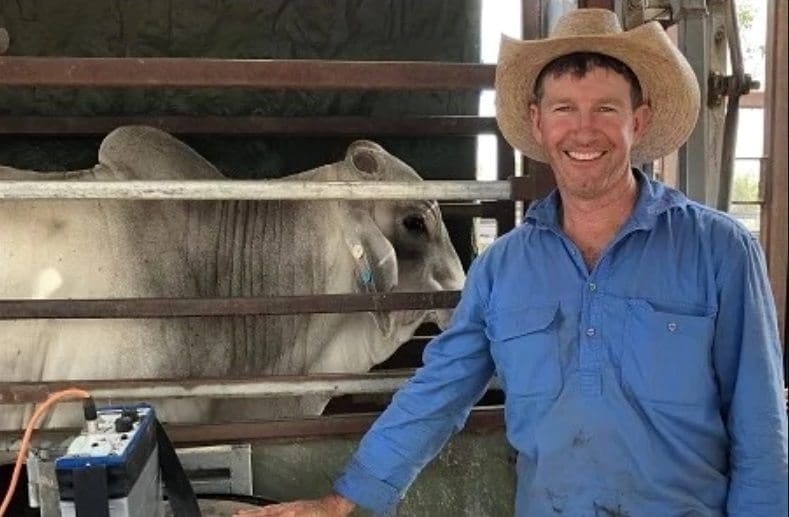PRODUCERS are playing a critical role in research in northern Australia to develop the accuracy of genomic predictions for profitable traits.
Near Charters Towers in Queensland, Wambiana Station is one of the businesses collaborating with the Queensland Alliance for Agriculture and Food Innovation genomics project to develop a DNA test to predict the value of an animal’s genetics for fertility.
The project is backed by the MLA Donor Company (with investment matched by the Australian Government) and the University of Queensland.
It’s in the DNA
Project leader Professor Ben Hayes said fertility was a critical trait in northern cattle.
“Fertility is the main driver of productivity and profitability of northern beef enterprises, but weaning rates – an indication of fertility – can be as low as 40pc in some herds,” he said.
“Lifting the reproductive performance of breeding herds is challenging for producers who manage extensive enterprises, because annual or biannual mustering limits the opportunity to record performance and track fertility traits across generations,” he said.
The answer was the genomic equivalent of an estimated breeding value (EBV). EBVs are already widely used in the beef industry to assess an animal’s performance traits compared to the breed average. A DNA test, however, would provide a highly accurate prediction tool of true genetic merit. This would enable young bulls with excellent fertility genetics to be identified and used early in life.
This project is commercially focused and aims to develop DNA tests not limited to a specific breed, so researchers are DNA sampling different breed compositions – including crossbred cattle – across Queensland, NT and WA.
Researchers are taking on the ambitious task of DNA sampling 30,000 northern cows and heifers in their quest to boost the fertility of northern herds.
A two-pronged approach to fertility
Michael and Michelle Lyons from Wambiana have provided up to 350 Brahman heifers for the Northern Genomics Project.
Mr Lyons believes fertility is one of the most important traits northern producers can select for in their herd.
“In our business, the cows that wean a calf in April–May and calve again in November–December each year are very profitable,” he said.
The Lyons’ have a two-pronged approach to selecting for fertility:
- Breeders: cows that are adapted to their environment and consistently calve each year with minimal inputs stay in the herd.
- Bulls: bulls with above-average EBVs are selected for days-to-calving and scrotal size, and bulls from dams which have produced a natural calf each year for at least four years are also selected.
“Some of the bulls we’ve produced from our in vitro fertilisation program are from dams that have had up to 14 calves in 14 years, which is an amazing feat in the north,” Mr Lyons said.
He said culling non-performing cows and selecting bulls with superior genetics was a critical strategy to improve the overall fertility in Wambiana’s herd.
“We’re a low-input business, so if we can genetically improve our fertility and get more calves on the ground without having to increase inputs to our breeders, it will lead to greater profitability,” he said.
Mr Lyons said a DNA test for fertility would provide more accuracy to the existing EBVs and greater predictability of reproductive performance.

Michael Lyons from Wambiana Station near Charters Towers
Want to get involved?
The Northern Genomics Project is still looking for northern beef herds to participate in this research. Herds can represent a range of breed compositions, including crossbred cattle, but producers need to:
- have a history of herd-recording using National Livestock Identification System tags
- practice controlled mating
- be able to provide lines of about 100 heifers/cows which are consistently managed.
Collaborating producers will receive information about when heifers cycle, the fertility performance of their herd compared to other herds in their region and a head start into genomics-assisted breeding.
If you are interested, click here to email Prof Ben Hayes.
Source: MLA
